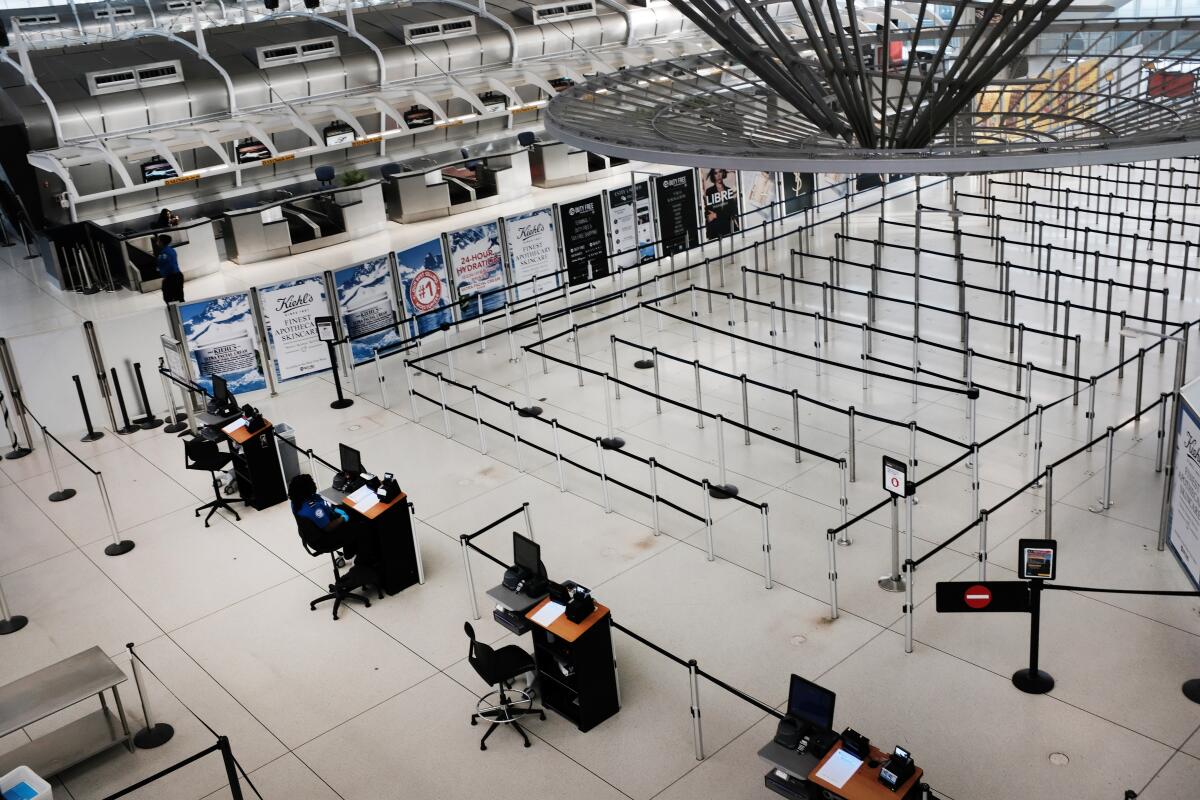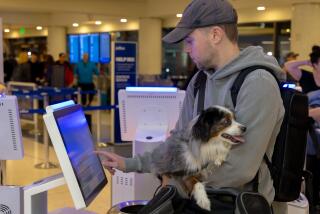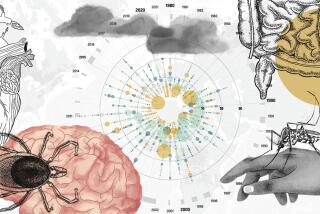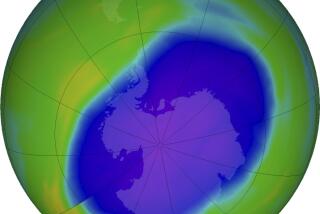Letters to the Editor: The coronavirus offers a once-in-a-lifetime opportunity on climate change

To the editor: For once , there is an unintended consequence that is supremely positive. The economic havoc that coronavirus is visiting on the world has surely reduced greenhouse gas emissions in a way that no coordinated actions by nations could have hoped for. (“Coronavirus has something to teach us about how to save the planet — by staying put,” Opinion, March 14)
We will come out of this pandemic. The world will survive. But the recovery will require sacrifice, and therein lies the second unintended consequence.
We, the citizenry of the world, can tell corporations and governments alike that if they want our participation in this shared sacrifice, then these are our conditions: Sustainability is part of everything we do from now on, and we must engineer and innovate our way out while reducing our dependence on fossil fuels.
Wayne Bass, Mission Viejo
..
To the editor: I read with a mix of amusement and disgust Christopher Ketcham’s essay on the dramatic reduction in air travel because of the COVID-19 pandemic. His solution to global warming and climate change is to retreat to a preindustrial world.
Humans travel, period. We are nomadic. We travel for trade. We travel for exploration. We travel for pleasure.
Curtailing carbon emissions is mandatory, obviously, but we will do that by moving forward, not backward. Science and industry will invent ways to fly that do not emit carbon compounds. Perhaps it will be fuel cells. Perhaps it will be something not yet thought of. But it will be emissions-free.
Humans will not change their nature, but they will change their methods. Climate change is the big threat, but also the big opportunity for humans to evolve. We will not retreat to a prehistoric, pre-fire world; we will progress to a post-fire world.
Paul Moser III, Palm Desert
..
To the editor: While we’re lounging around on our toilet paper on a TV binge, something quite marvelous is happening — the Earth is finally allowed to “breathe” for the first time in generations. Think of the reduced air pollution as a result of quiet freeways and airways all around the world.
Now, the issue is, do we finally pay attention and make some cleaner changes, or do we go back to “business as usual” and our demise?
Sandy Mishodek, Running Springs
..
To the editor: The best way to reduce fossil carbon pollution may not be to decrease flights. Putting a price on fossil carbon will help us find the best ways to reduce our dependence on fossil carbon.
Air transport has options. When the price of fossil carbon reaches the needed level, options such as electric airplanes and airplanes using fuel created from water, carbon dioxide and solar energy will be more competitive.
I suspect we can easily find ways to fly while reducing fossil carbon use. I hold a doctorate in flight science and have studied these options.
Jim Martin, Huntington Beach
..
To the editor: In the middle of the day I hear birds chirping instead of horns, sirens and helicopters droning. I can hear my neighbor’s son practicing his flute. The streets are almost empty of traffic.
I wonder if globally our carbon emissions have dropped so that glaciers have slowed down their melting and that the Earth’s temperature has ever so fractionally dropped.
I wonder.
Genie Saffren, Los Angeles
..
To the editor: How come scientists working to save us from COVID-19 are heroes, yet scientists working to save us from climate change are liars?
Patty Donnelly, Chino Hills
More to Read
A cure for the common opinion
Get thought-provoking perspectives with our weekly newsletter.
You may occasionally receive promotional content from the Los Angeles Times.










